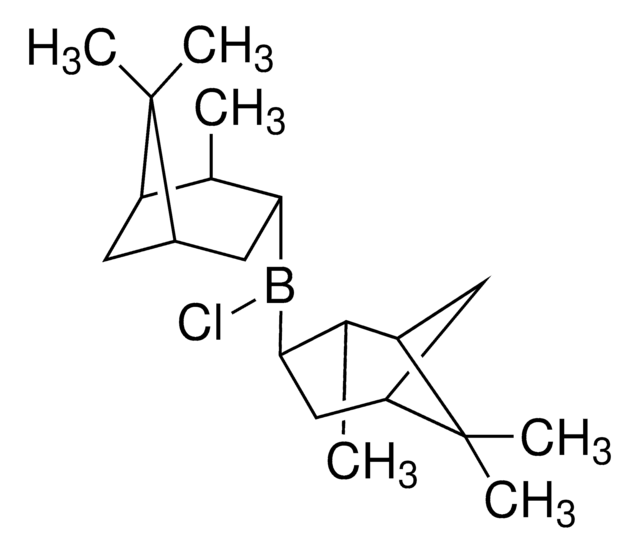793620
Lithium chloride
anhydrous, free-flowing, Redi-Dri™, ReagentPlus®, 99%
Sign Into View Organizational & Contract Pricing
All Photos(8)
About This Item
Linear Formula:
LiCl
CAS Number:
Molecular Weight:
42.39
EC Number:
MDL number:
UNSPSC Code:
12352302
PubChem Substance ID:
NACRES:
NA.21
Assay:
99%
grade:
anhydrous
form:
powder or crystals
Recommended Products
grade
anhydrous
Quality Level
product line
ReagentPlus®
Redi-Dri™
Assay
99%
form
powder or crystals
quality
free-flowing
pH
6
mp
605 °C (lit.)
SMILES string
[Li+].[Cl-]
InChI
1S/ClH.Li/h1H;/q;+1/p-1
InChI key
KWGKDLIKAYFUFQ-UHFFFAOYSA-M
Looking for similar products? Visit Product Comparison Guide
General description
Redi-Dri™ technology eliminates clumping and the need for complicated procedures to keep your salts free-flowing. Keeping your salts dry helps improve your results by giving accurate measurements and easier-to-handle salts and buffers. Rather than drying your salts in an oven or desiccator or breaking them apart manually, Redi-Dri™ ensures that your salts will remain easy-to-use for months without worrying about anti-caking agents. Even after repeated openings you can be assured that your results are always accurate. Redi-Dri™ saves you time, energy and money by keeping your salts usable for longer!
Application
Lithium chloride can be used as a catalyst in the solvent-free:
- Cyanosilylation of aldehydes and ketones with cyanotrialkylsilanes to give silylated cyanohydrins.
- Microwave-assisted Claisen-Schmidt condensation to prepare α, β-unsaturated ketones.
- An additive in the Pd-catalyzed Stille coupling of aryl iodides with arylstannanes to synthesize corresponding biphenyls.
- A catalyst for the chemo- and regioselective demethylation of aryl methyl ethers to corresponding phenol products.
Features and Benefits
- Increased efficiency – Eliminate time and effort of loosening hardened powders
- Safety – Avoid risks of using tools of force to break up clumps
- Economy – Faster preparation and solvation increase productivity and reduce costs
- Assured quality – Excellent, expert-tested quality with no anti-caking agents
- Flexible volumes – Available from research amounts to scale-up quantities
Legal Information
ReagentPlus is a registered trademark of Merck KGaA, Darmstadt, Germany
Redi-Dri is a trademark of Sigma-Aldrich Co. LLC
Not finding the right product?
Try our Product Selector Tool.
Signal Word
Warning
Hazard Statements
Precautionary Statements
Hazard Classifications
Acute Tox. 4 Oral - Eye Irrit. 2 - Skin Irrit. 2
Storage Class Code
13 - Non Combustible Solids
WGK
WGK 1
Flash Point(F)
Not applicable
Flash Point(C)
Not applicable
Choose from one of the most recent versions:
Already Own This Product?
Find documentation for the products that you have recently purchased in the Document Library.
Customers Also Viewed
Giovanna Cutrone et al.
Carbohydrate polymers, 223, 115085-115085 (2019-08-21)
Nanoparticles made of metal-organic frameworks (nanoMOFs) are becoming of increasing interest as drug carriers. However, engineered coatings such as poly(ethylene glycol) (PEG) based ones are required to prevent nanoMOFs recognition and clearance by the innate immune system, a prerequisite for
Alessandro Di Maio et al.
EvoDevo, 6, 17-17 (2015-07-15)
Wnt signaling is one of the earliest and most highly conserved regulatory pathways for the establishment of the body axes during regeneration and early development. In regeneration, body axes determination occurs independently of tissue rearrangement and early developmental cues. Modulation
Na An et al.
Proceedings of the National Academy of Sciences of the United States of America, 111(40), 14325-14331 (2014-09-17)
Human telomeric DNA consists of tandem repeats of the sequence 5'-TTAGGG-3' that can fold into various G-quadruplexes, including the hybrid, basket, and propeller folds. In this report, we demonstrate use of the α-hemolysin ion channel to analyze these subtle topological
Ted M Hsu et al.
Neuropsychopharmacology : official publication of the American College of Neuropsychopharmacology, 40(2), 327-337 (2014-07-19)
Glucagon-like peptide-1 (GLP-1) is produced in the small intestines and in nucleus tractus solitarius (NTS) neurons. Activation of central GLP-1 receptors (GLP-1Rs) reduces feeding and body weight. The neural circuits mediating these effects are only partially understood. Here we investigate
Hector Vargas-Perez et al.
The Journal of neuroscience : the official journal of the Society for Neuroscience, 34(23), 7899-7909 (2014-06-06)
Drug administration to avoid unpleasant drug withdrawal symptoms has been hypothesized to be a crucial factor that leads to compulsive drug-taking behavior. However, the neural relationship between the aversive motivational state produced by drug withdrawal and the development of the
Our team of scientists has experience in all areas of research including Life Science, Material Science, Chemical Synthesis, Chromatography, Analytical and many others.
Contact Technical Service






